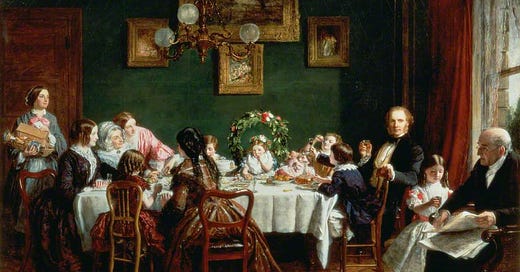Sketch of Ole and Steen, Dogs that Look like Bears
Snegls and Surrealities: A Peculiar Portrait of a Danish Import Café
Ole and Steen cafe, a Denmark import, coffee, snegls, and muffins. Here, mellow, twenty-year-old, indie music plays on the radio over the agreeable chatter of families here, lots of them, South Kensington Station is near. They’re all getting out on a beautiful spring day, being with people, talking about nothing important—everything seems important at t…
Keep reading with a 7-day free trial
Subscribe to Kristen Simental to keep reading this post and get 7 days of free access to the full post archives.




